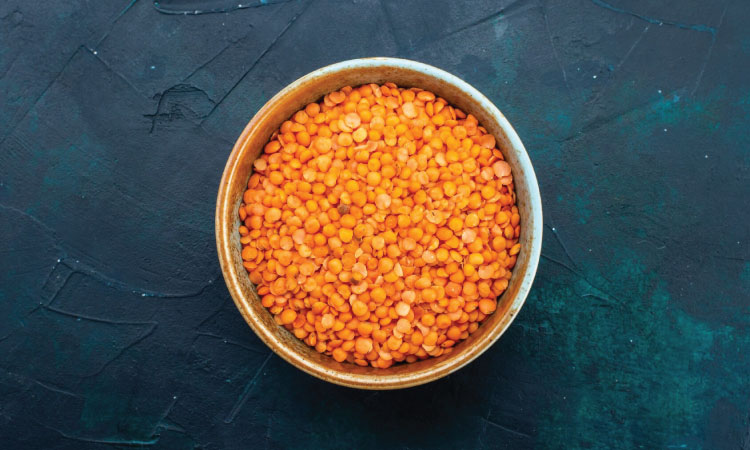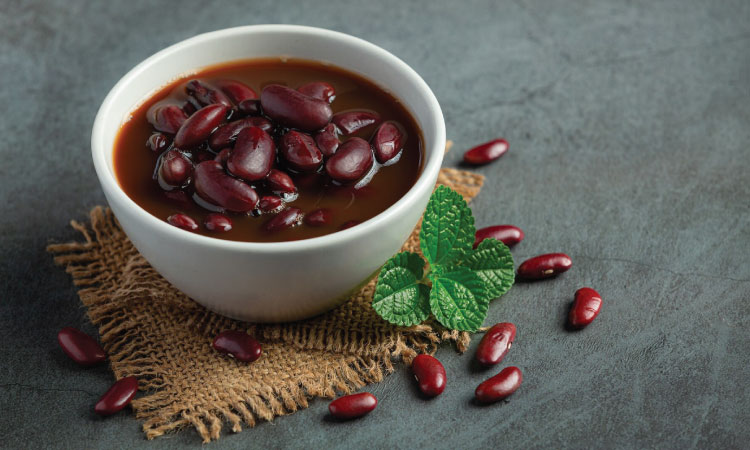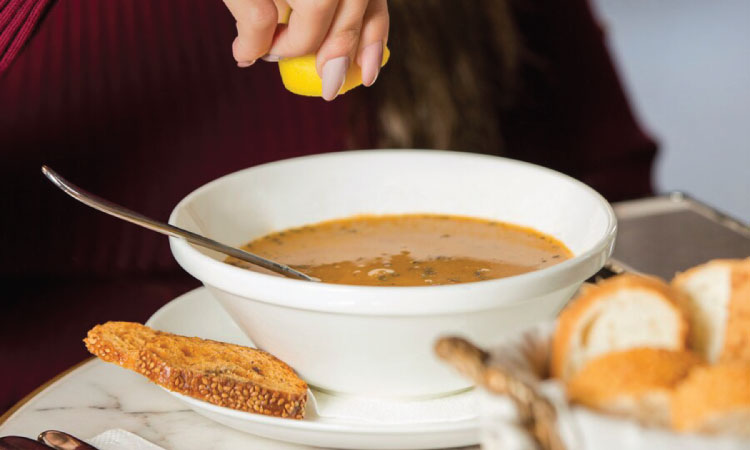Pregnancy is undoubtedly an enthralling phase in the life of a woman. With it comes a set of new responsibilities, lifestyle changes, a list of dos and don’ts, and the expert advice of the old wives, etc. The amount of happiness is even coupled with anxiety and curiosity. There is a sense of fear, especially in the first and last trimesters. This is a time to be vigilant, take care of nutrition, sleep, and stay away from stress.
Older people say that what the mother feels affects the child; hence, all efforts must be made to keep the mother healthy and happy. Nutrition has to be proper and comprise legumes, lentils, fruits, and vegetables. Some are to be taken in limited quantities. One question to ponder is: “Which dal to avoid during pregnancy?” Though it is said to have dal as it is a wholesome meal, it is surprising to know which ”dal to avoid during pregnancy.”
Which Dal To Avoid During Pregnancy?
Dal is a wholesome meal and is filling even if taken alone. However, during pregnancy, it is important to know what the right quantity for consuming dal is. Too much or too little can have adverse effects on the health of a pregnant woman.
Moreover, it is also important to know “which dal is not good in pregnancy” or “which pulses to avoid during pregnancy.”
Let us have a look at the different days and also understand why they are harmful to consume during pregnancy. A few days that should be avoided during pregnancy are:
1. Urad Dal
Black gram or (urad dal) comprises Omega-3 and Omega-6 fatty acids. Still, black gram is not recommended to be consumed during pregnancy since it can lead to a rise in uric acid levels, resulting in stone formation in the kidneys. Here are a few examples of how urad dal can harm a pregnant woman. Some of them are1:
- Urad dal has bacteria like E coli, Salmonella and Listeria so should be cooked till the boiling point to destroy them else chances of miscarriage and pre-term labor, stillbirth, etc.
- A rise in uric acid levels in the initial stages of pregnancy can result in the malfunctioning of the liver and fluid in the lungs of the pregnant woman.
- A rise in the uric acid concentration can even lead to problems with the health of the developing baby sometimes resulting in death.
- Urad dal if consumed in greater quantity can lead to acidic issues as well which is not good for the health of a pregnant woman.
2. Chana Dal
Chana dal is a nutritious meal, but it is difficult to digest. This is one of the reasons why it is not recommended to give chana dal to a pregnant woman. Even though chana dal is full of nutrition, there are some disadvantages to consuming it during pregnancy as well. These are discussed as follows2:
- Consuming chana dal can result in allergic reactions in case the pregnant woman already has had allergies before.
- Since chana dal is heavy to digest, it might result in acidity.
- Chana dal consumption can result in stomach aches as well since it results in acidity and gastric issues.
- Chana dal is even known to result in itchiness, nausea, etc.
- Too much chana dal can even result in diarrhea.
- Having chana dal has few benefits so consuming it as per the recommendation from the doctor helps. It is advisable to take around 2 bowls preferably in the second trimester.
Related Reading: How To Cope With Heavy Feeling In Stomach During Early Pregnancy
Calculate Due Date With LMP
3. Toor Dal

Even when referred to as “pigeon peas,” they are known by many different names throughout the country, including “Arhar dal,” “Tuvar dal,” “Kandi,” “Pappu,” and others. It is one of the most produced things in the country. Ayurveda says that it is good for treating liver problems and giving you more energy.
Even Kapha and pitta dosha are lessened by it. However, an excess of anything can lead to a Vata dosha imbalance. Even though there are no risks associated with eating it while pregnant, there are some cons3:
- Toor dal consumption can result in allergies.
- Toor dal consumption results in gas and bloating
- It is best to consume it within minimal limits as prescribed by the doctor if one has constipation, diarrhea, or IBS symptoms.
- Toor dal contains oligosaccharides, a type of carbohydrate that is difficult to digest and can cause flatulence if consumed in large quantities.
4. Masoor Dal
It’s a popular dal in Indian kitchens and is sometimes referred to as “red lentils.” It’s a fantastic protein source. While whole masoor dal is brown, this variety, known as split masoor, is a vibrant red.
Proteins, carbohydrates, vitamins, fibers, and other micronutrients can all be found in healthy amounts in masoor dal. There are numerous advantages to eating masoor dal while pregnant, but there are also some drawbacks that should not be disregarded4.
- Masoor dal consumption can result in gastric issues for the pregnant woman.
- Consumption of this dal makes the stomach very heavy, leading to stomach discomfort so it is best to have it within advisable limits after consulting a doctor.
- Since it is not easy to digest, it can result in indigestion.
Related Reading: How To Cope With Late-Night Hunger During Pregnancy
5. Black Eyed Peas or Lobia
During the second and third trimesters of pregnancy, eating Lobia or black-eyed peas regularly can help ensure a healthy diet for the developing baby.
This is because it contains chemicals and protective compounds like antioxidants and amino acids. However, this should be used with caution because it can cause side effects such as5:
- Since Lobia contains the gas-inducing Raffinose enzyme, eating it while pregnant can cause nausea, vomiting, and stomach pain.
6. Kidney Beans or Rajma

Another group of pregnancy-friendly superfoods is the red kidney bean. This is due to the presence of amino acids, copper, etc. You can eat this as a meal in and of itself or add it to salads, sandwiches, or soups.
However, before cooking them, it is necessary to wash and soak them in water. Due to the high amount of sodium that is contained in canned beans, it is even more important to avoid eating them. On top of this, there are a few other reasons why pregnant women shouldn’t eat red kidney beans. These reasons are as follows6:
- Since red kidney beans contain raffinose, eating them while pregnant may cause digestive issues such as bloating, flatulence, and abdominal pain. These symptoms may last for several hours after eating the beans.
- There are chances of having kidney stones or gout due to the presence of a natural chemical called Purines.
- Phytohemagglutinin in kidney beans can even affect health if consumed in large quantities.
7. White chickpeas /Kabuli chana
It is the safest food to consume during pregnancy. It is critical to cook them thoroughly until soft and to use a moderate amount. They have a high nutritional value and provide folic acid, minerals, and proteins to the diet, but they have the following side effects7:
- If one has been sensitive to them before conceiving, high chance to show an allergic reaction during pregnancy as well.
- Consumption of excess chickpeas can result in kidney stones.
- Few women have even reported acidic issues.
- Chickpeas should be eaten only after cooking them properly else they can cause digestive trouble like bloating, gas, stomach disorder, etc.
- Purine present in chickpeas can lead to a rise in uric acid levels resulting in gout.
- Since chickpeas have good dietary fiber, good consumption is not recommended if diarrhea.
- If the pregnant woman has an allergy to soybeans, there is a high chance for her to get allergic reactions in the form of nausea, stomach ailment, itching, rashes, etc.
Related Reading: 6 Spices To Eat And 6 Spices To Avoid During Pregnancy
As a result, there is no doubt that the majority of the dal contains fiber, vitamins, minerals, and folate. Consuming dal during the third leg of pregnancy is good for the baby’s brain and weight.
But it is equally important to have it in moderation and have a proper consultation with the doctor before having any dal, as the side effects can harm the mother and the baby.
FAQs
Experts recommend that pregnant women eat at least two bowls per day during their second trimester. However, it is best to get a doctor’s okay and learn what the actual intake is that is safe for both the mother and the developing baby.
Lentils are an excellent source of nutrition, and some of the benefits of eating them include the following:
It helps in reducing the risk of heart ailments
It reduces the bad cholesterol
It helps in improving digestion
It lowers the blood sugar level in the body
It helps in fighting cancer
It controls diabetes
It helps in losing weight
It prevents the risk of birth defects in expecting mothers
It helps in the proper functioning of the digestive system
It boosts the metabolism of the body
Because dal contains many nutrients and only a few bacteria, it is critical to thoroughly wash it and cook it to the boiling point to kill any bacteria that may be present. To reap the best benefits, it is advisable to soak it for an hour and then cook it well. Due to the high starch content, dals like yellow moong need to be washed at least four to six times before they can be used in a recipe.


